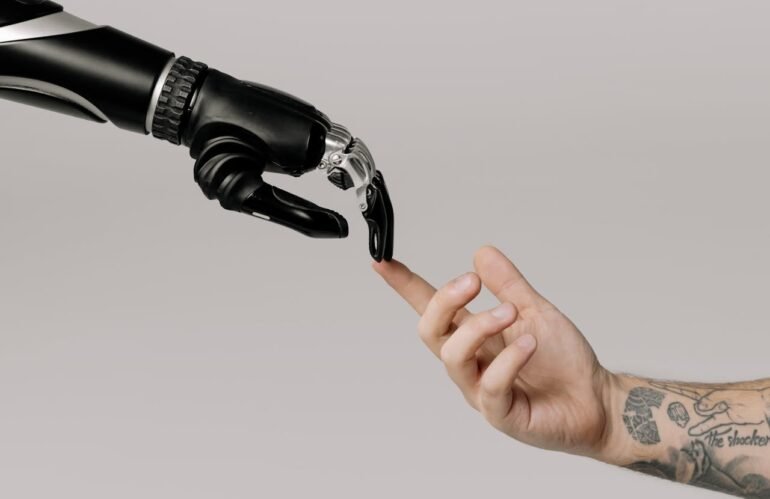25th April 2024 – In the realm of technological innovation, few advancements have sparked as much debate as Artificial Intelligence (AI). As AI permeates various industries and facets of human life, the question arises: Is AI a threat looming on the horizon or a blessing upon humanity?
Undoubtedly, AI stands as one of the most exciting and transformative developments of our time. Its potential to revolutionize industries, streamline processes, and enhance productivity is undeniable. Yet, like any powerful tool, it carries both pros and cons.
Reduce Human Error: It can reduce human error, augmenting tasks and making them more manageable. From simple spell checks to complex algorithms, AI has proven its ability to enhance efficiency and accuracy, thereby facilitating progress in various fields.
Tirelessly Working: Moreover, AI’s tireless nature and 24/7 availability make it an invaluable asset, particularly in sectors requiring constant support or high volumes of inquiries and transactions. In industries such as hospitality and healthcare, where uninterrupted service is paramount, AI-powered systems offer unparalleled reliability and continuity.
Digital assistant: “Siri plays the music” or “Alexa turns my alarm” These are some daily commands we give to our digital assistant. From virtual assistants managing schedules to smart home devices automating household chores, AI has become an indispensable ally in navigating modern life.
However, alongside its myriad benefits, AI presents certain challenges and concerns. Chief among them is the high cost associated with its development and maintenance. The resources required to create and sustain AI systems can be prohibitive, limiting access to smaller organizations and exacerbating inequalities.
Can’t think Outside of the box: AI does not have a mind like humans so they can’t think out of the box and they are not creative. AI excels at repetitive tasks and data processing, but it lacks the nuanced understanding, creativity, and adaptability inherent in human cognition.
Can’t Replicate Humans: No doubt machines are smart and fast but they can’t replicate humans they don’t implement emotion when it’s needed. They don’t know what is legal and what is ethical they don’t have judging skills like humans.
Yet, despite these apprehensions, history reminds us that progress often comes with risks and uncertainties. The advent of AI, with its transformative potential, mirrors previous technological revolutions that have reshaped society and propelled humanity forward.
Ultimately, the question of whether AI is a threat or a blessing hinges on our approach to its development and utilization. By harnessing AI responsibly, ethically, and inclusively, we can unlock its full potential as a force for good. Rather than viewing AI as a doom, let us embrace it as a tool for innovation, exploration, and the advancement of human welfare. It is an opportunity to be seized in our ongoing quest for a better future.

